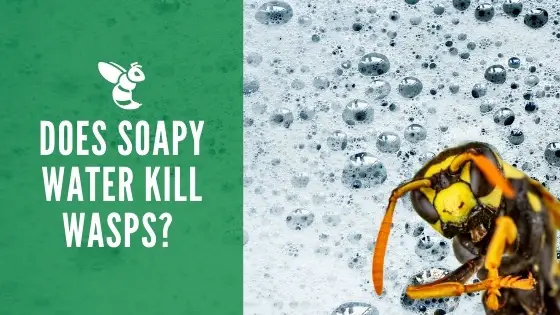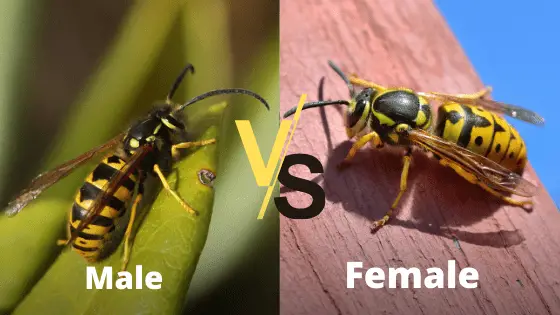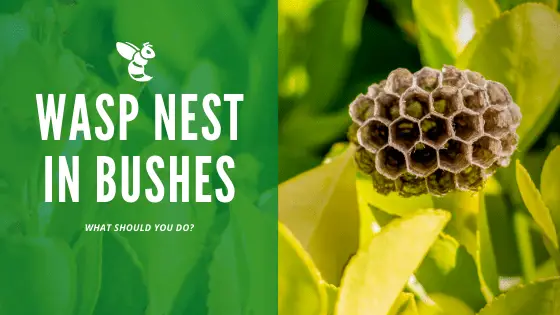Do Birds Eat Wasps? How Do Birds Eat Wasps Safely?
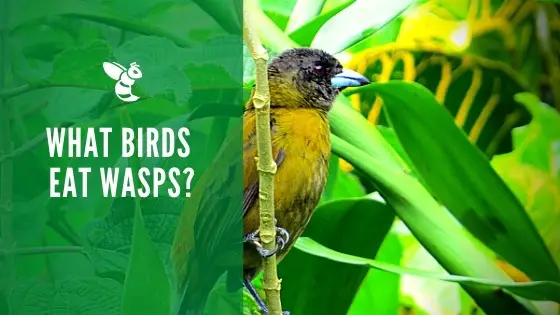
Just like other insects are targeted by wasps as their next meal, wasps are the meal for many other animals. More than 25 different varieties of birds will regularly eat wasps as a meal when they are provided with the opportunity to attack or grab some of the larvae from the nest. Wondering what birds eat wasps? We got some interesting facts.
How Do Birds Eat Wasp and Avoid Getting Stung?
Some species of birds that eat wasps include catbirds, warblers, bluebirds, bee-eaters, purple martins, sparrows, blackbirds, and wrens. The majority of birds that live in the U.S. will eat insects. Since many of these insects contain some form of venom, you’re probably wondering how birds can eat wasps without getting stung or poisoned.
Birds aren’t immune from getting stung, but they’ve come up with ways to kill and consume wasps and other insects that prevent them from being harmed. It’s much easier for a bird to target a solitary wasp that isn’t part of a large colony.
This means that they can focus all of their attention on that one wasp that they’re trying to make their next meal and not have to worry about other wasps in the colony stinging them. The mud dauber is a type of wasp that birds often target because of their choice to live alone.
There are also birds like summer tanagers with a unique process for killing wasps that prevent them from getting stung. The tanager will snatch bees and wasps in mid-air, then grind the wasp into the bark of a tree to kill it before consuming it.
This process eliminates the potential of a wasp being able to sting the bird during a fight as the stinger is quickly broken off during the struggle.
Birds also have very thick feathers that will block a stinger from getting through to their body. Some of these feathers have the ability to secrete a chemical that will confuse the wasps when they come into contact with it. This makes it easier for the bird to kill the wasp without being in danger.
Do Hummingbirds Eat Wasps?
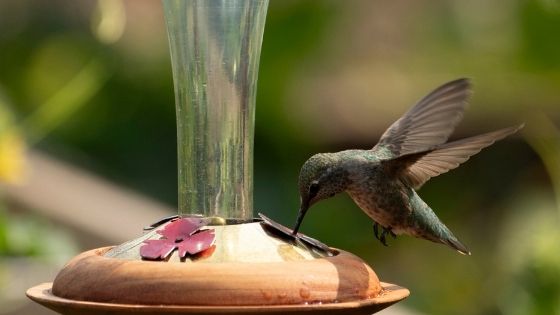
You’ve probably seen some of the fancy hummingbird feeders that are in people’s gardens and yards. You may even have one of your own. Hummingbirds are very different from other species of birds because of what they like to eat.
They are attracted to the sweet nectar of certain flowers, and this is what that syrup-like mixture resembles that’s inside of those decorative feeders. Hummingbirds do not consume wasps or bees.
While they are a beautiful bird to have in your yard, they’re not going to help you control the wasp population nearby.
That being said, hummingbirds will eat other varieties of insects. They stick to smaller varieties as well as the eggs and larvae of small insects. Nectar may be a favorite of theirs, but this sweet treat doesn’t provide enough protein or amino acids for optimal health.
How to Attract Birds That Eat Wasps
A common way to attract birds like catbirds and tanagers is to plant berry trees or bushes. Berries such as wild blackberry and wild grape are a regular part of their diets. If you can not plant berry trees or bushes you can put out a fruit feeder for birds. Birds that eat wasps are also attracted to feeders with mealworms.
Do Birds Eat Cicada Killer Wasps?
Birds will attack and eat a cicada killer wasp if they feel safe for them to do so. If there is a large group of cicada killer wasps together in one area, the bird will likely wait until they have a more opportune moment to strike. Because these wasps can be very aggressive, birds will take caution when they are assessing the opportunity for their next meal. Birds are quite intelligent and have a great sense of how they can thrive.
Can Wasps Kill a Bird?
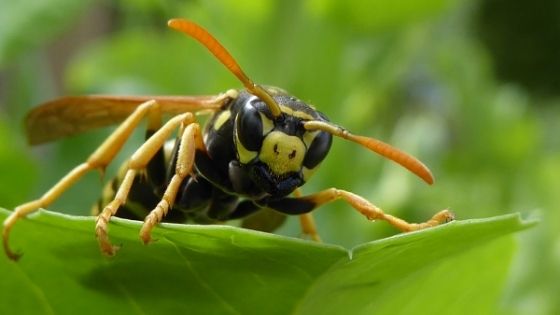
It’s improbable that a wasp would be able to kill a healthy bird. Many factors will naturally help the bird remain protected. After all, the bird can fly away if their plan to attack a wasp has gone wrong. A sting isn’t entirely impossible, but a bird will generally be able to deal with the sting.
In rare cases, if they are stung multiple times in a short amount of time and are slowed down so they cannot escape, a bird could be stung enough times that it would be lethal to their small bodies.
Occasionally you will find a bird that doesn’t mind getting stung a few times to get a full belly. A large blue jay is going to hold up far better to a sting (or two) than something small like a sparrow. The reward generally is worth the harm that’s inflicted on the bird.
Feel free to attract birds to your yard if you’d like their help with keeping wasps and other insects under control on your property. You’d be surprised with what one bird feeder can bring to your yard each spring and summer.
Sources
https://sciencing.com/things-eat-wasps-bees-8051549.html
https://www.birdnote.org/listen/shows/summer-tanagers-wasp-hunters
https://www.pennington.com/all-products/wild-bird/resources/dealing-with-wasps
http://waspremovaltoronto.ca/blog/what-are-some-examples-of-birds-that-eat-wasps/

